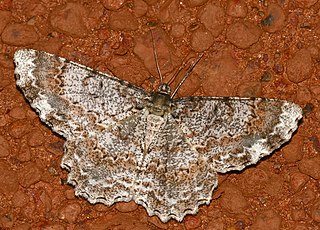
Epimecis detexta, the avacado spanworm moth, is a species of geometrid moth in the family Geometridae. It is found in the Caribbean Sea and North America.
Speranza argillacearia, the mousy angle moth, is a species of geometrid moth in the family Geometridae. It is found in North America.
Erastria decrepitaria is a species of geometrid moth in the family Geometridae. It is found in Central America, North America, and South America.
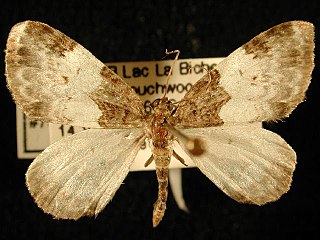
Mesoleuca ruficillata, the white-ribboned carpet moth, is a species of geometrid moth in the family Geometridae. It is found in North America.
Speranza subcessaria, the barred speranza, is a species of geometrid moth in the family Geometridae. It is found in North America.
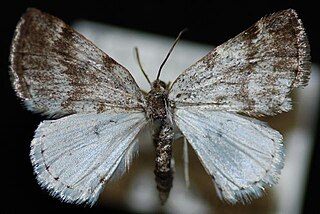
Lomographa semiclarata, known generally as the bluish spring moth or wild cherry looper, is a species of geometrid moth in the family Geometridae. It is found in North America.
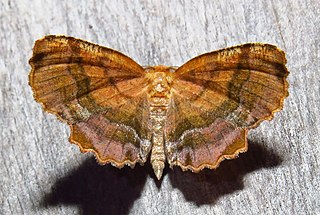
Cepphis armataria, the scallop moth, is a species of geometrid moth in the family Geometridae. It is found in North America.
Perizoma basaliata, the square-patched carpet moth, is a species of geometrid moth in the family Geometridae. It is found in North America.

Oxydia vesulia, the spurge spanworm moth, is a species of geometrid moth in the family Geometridae. It is found in the Caribbean Sea, Central America, North America, and South America.
Hypomecis buchholzaria, known generally as the blue spiderwort moth or Buchholz's gray, is a species of geometrid moth in the family Geometridae. It is found in North America.
Cabera quadrifasciaria, known generally as the four-lined cabera moth or four-lined cream moth, is a species of geometrid moth in the family Geometridae. It is found in North America.
Heliomata infulata, the rare spring moth, is a species of geometrid moth in the family Geometridae. It is found in North America.
Orthofidonia flavivenata, the yellow-veined geometer moth, is a species of geometrid moth in the family Geometridae. It is found in North America.
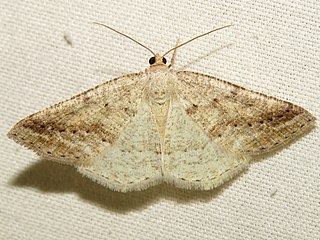
Tacparia detersata, the pale alder moth, is a species of geometrid moth in the family Geometridae. It is found in North America.
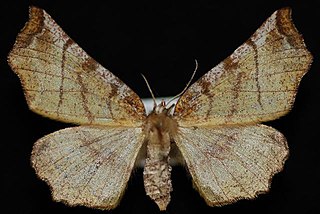
Selenia alciphearia, known generally as the northern selenia or brown-tipped thorn, is a species of geometrid moth in the family Geometridae. It is found in North America.
Lytrosis sinuosa, the sinuous lytrosis moth, is a species of geometrid moth in the family Geometridae. It is found in North America.
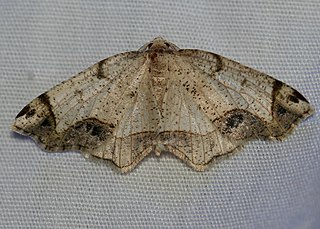
Probole alienaria, the alien probole, is a species of geometrid moth in the family Geometridae. It is found in North America.
Xanthotype attenuaria, the attentive crocus soldier moth, is a species of geometrid moth in the family Geometridae. It is found in North America.

Iridopsis vellivolata, the large purplish gray, is a species of geometrid moth in the family Geometridae. It is found in North America.
Lobocleta plemyraria, the straight-lined wave, is a species of geometrid moth in the family Geometridae. It is found in North America.








